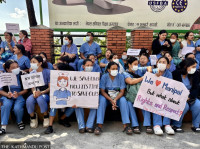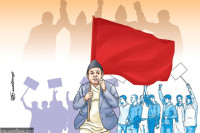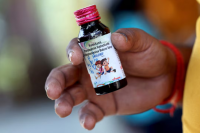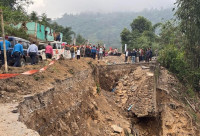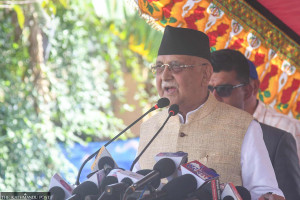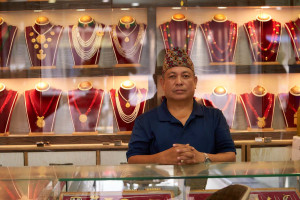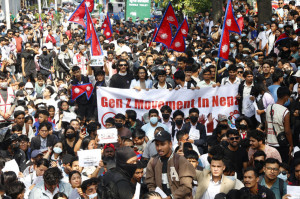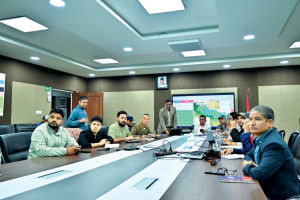Opinion
No thank you
I got hurt when my father, giving a short speech on the occasion of his 70th birthday
Suraj Narayan Singh Thapa
So when do you say thank you, to whom at what moment in time and in what circumstances? Does saying thank you to your loved ones and close ones diminish or cast doubts on your closeness or bonding? My sister who was in Nepal said she did not like my brother, who lives in the US, saying thank you many times for a small thing that she did for him. The same would have been completely different in the case of hi-hello friends, cousins and acquaintances. We expect a big thank you for a little help from acquaintances. So for the favours you do, the more distant is your relationship, the more thank yous one expects, and the closer you are, the less thank yous.
Many people in Nepal in general do not have the courtesy of saying thank you when some work is done for them. Nonetheless, Nepali society is generally very warm, patient and helpful. Especially in villages, we still have the tradition of giving shelter and food to travellers which is not common in Western societies. At mobile shops, I have repeatedly tried to pay for the time and effort spent on fixing a small technical fault in my cell phone, but the shopkeepers refuse to take money saying, “We don’t need money for such a small thing.”
In the US, even acquaintances and strangers greeted me, which in most cases, ended with only the greetings. In contrast, many Nepali people might not greet you or say thank you frequently; but when they start talking, it ends in a long conversation and a bonding develops. It would be great if the Nepali population, who are so warm, improved their appreciative qualities too. A lot of people in Nepal think it is their right to get services and free rides; and that might be the reason employees in the service industry are paid so little. The same people will pay in dollars and pounds for services outside Nepal, but they will be miserly when paying for similar services here.
I think a lot of politicians and people in power have to say sorry and thank you to the Nepali people: Sorry for putting the country in a sorry state, and thank you for being so patient in spite of the distress and uncertainly. Maybe politicians too feel that they are so closely bonded with the people like “daju bhai, didi bahini” (brothers and sisters) that they do not need to say thank you to us.




 16.12°C Kathmandu
16.12°C Kathmandu
